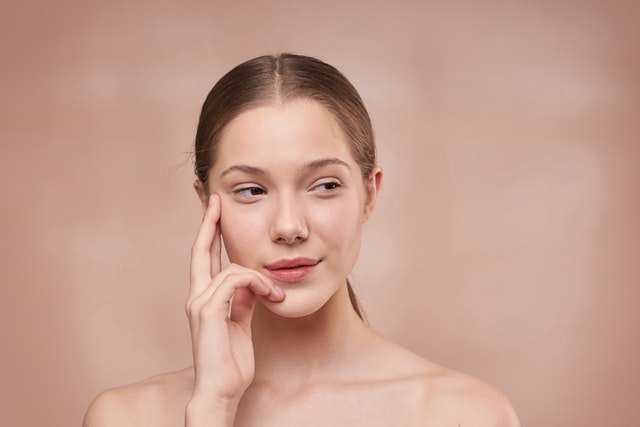Azelaic acid is one of the best-kept secrets in the beauty world, even though most people who use products with this ingredient see instant results. If you have stubborn acne, persistent rosacea, or any other inflammatory condition, you may want to give azelaic acid a try.
 |
| What Are the Benefits of Azelaic Acid for Your Skin and How to Get Prescription-Grade Azelaic Acid Beauty Products [image: pexels by shiny diamond] |
What is Azelaic Acid?
Azelaic acid is a dicarboxylic acid that’s a natural by-product of yeast and is commonly used for skin conditions that result in redness or a dull complexion. Since azelaic acid has antibacterial properties, it’s effective at calming the skin, removing dead skin cells, and unclogging pores.
Overgrowth of bacteria or yeast in pores contributes to rosacea in some cases, and acne, in most cases. Azelaic acid can reduce these organisms in your skin and exfoliates the epidermis until it’s smooth, which makes breakouts less likely to occur and redness less common.
The Difference Between OTC and Prescription Azelaic Acid
Like tretinoin, salicylic acid, and isotretinoin, azelaic acid can be taken out as a prescription or over-the-counter (OTC). The OTC variety will be less concentrated than prescription azelaic acid, but some people may prefer OTC azelaic acid because it’s often less expensive.
OTC azelaic acid caps out at 10% and may work for your skin conditions, but if you don’t see results in 2-4 weeks, you should try something stronger. 15% or 20% azelaic acid, which can only be purchased with a prescription, is more effective at reducing inflammation and scarring.
You can get an azelaic acid prescription through a licensed dermatologist. You may need to get a referral from your doctor before you can speak to a dermatologist about your skin issues.
How Azelaic Acid Benefits Your Skin
Whether you use azelaic acid as a foam, gel, creme, or medication, azelaic acid can benefit your skin in multiple ways. Here are 5 reasons why you may need to use azelaic acid.
1. Azelaic Acid Helps With Acne and Cleaning the Face
Most people who use azelaic acid do so to clean their pores, reduce inflammation, and encourage cell turnover. These benefits lead to additional positives, like reducing the number of breakouts that occur on the face and speeding up the recovery process of popped pimples.
2. Azelaic Acid Reduces the Appearance of Acne Scars
In addition to active breakouts, azelaic acid can reduce the appearance of scars. That’s because azelaic acid encourages cell turnover, a process that removes dead and surface-level skin cells. Azelaic acid can also prevent melanin synthesis, which leads to an uneven tone.
3. Azelaic Acid Helps With Hyperpigmentation and Melasma
Melasma and hyperpigmentation are conditions that cause freckle-like spots to appear all over the body. With melasma, these spots may appear randomly, whereas hyperpigmentation may appear after an acne breakout. Both conditions can be treated with azelaic acid products.
4. Azelaic Acid Can Lighten Skin Discolored by Melanin
Melanin is what determines the color of your skin, hair, and eyes. People with more melanin usually display darker skin tones, which help protect the skin from UV rays. If you have blotchy areas in your skin, you can use azelaic acid to even your skin tone or lighten up skin patches.
5. Azelaic Acid Reduces Inflammation Caused by Rosacea
Rosacea is typically caused by diet or stress, but the type of skincare products you use can contribute to a flare-up. Since azelaic acid reduces inflammation, it can be used to treat redness in the short term and improve the appearance of spider veins in the long term.

No comments:
Post a Comment
Please Leave a Comment to show some Love ~ Thanks